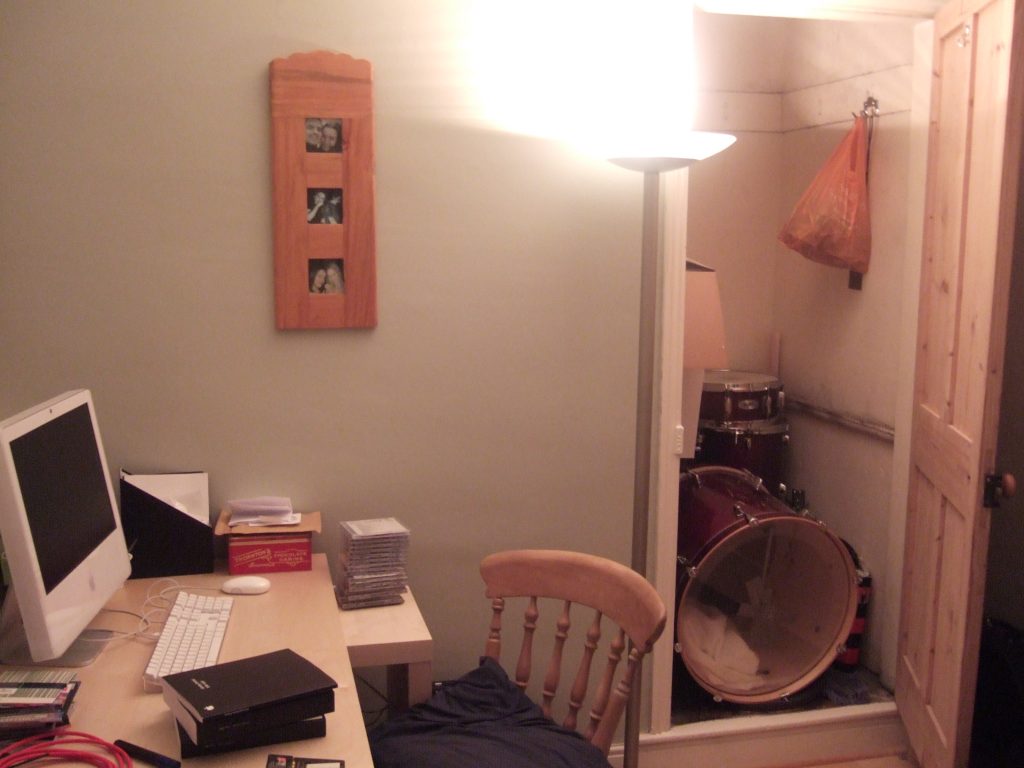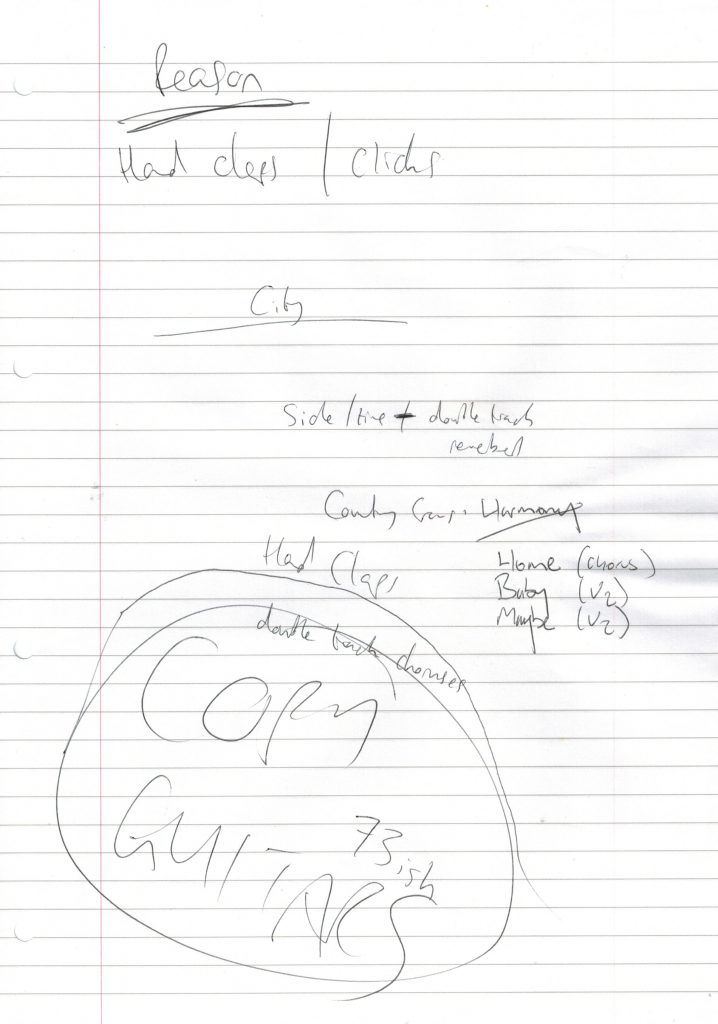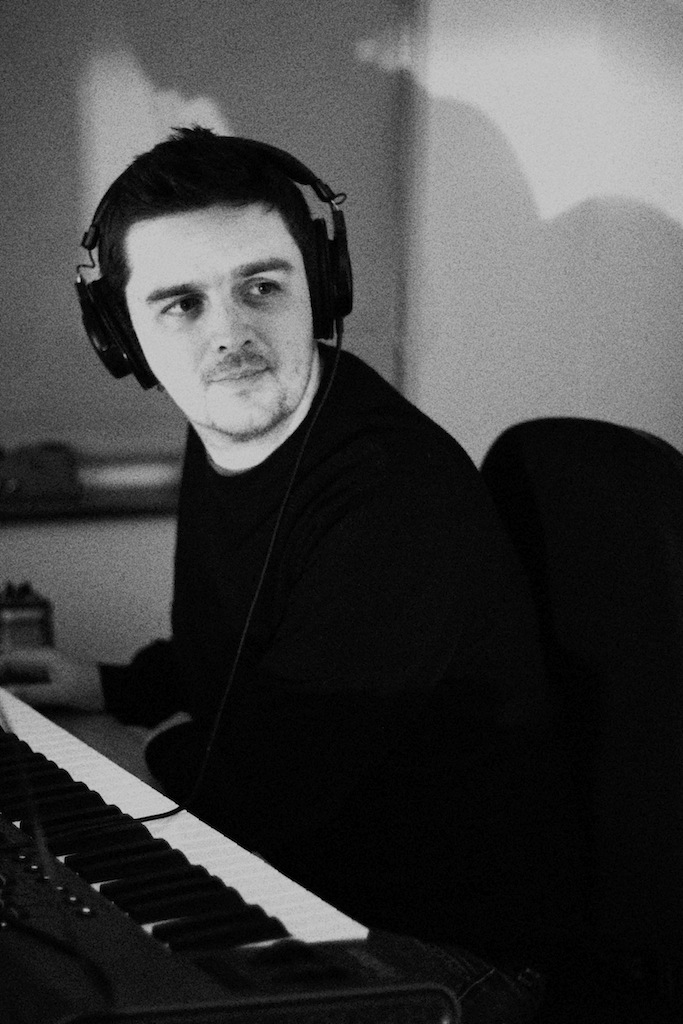
This is the second part of a blog about how I became a music producer (part one here is basically my back-story). This blog is about how I started production in earnest, spotted an opportunity and got set up as a professional.
After years of recording on cassettes, I got a loan to buy some proper recording equipment. Deciding on quality over quantity, I bought an iMac, Logic Pro 6, an AKG414 mic and a Mackie Onyx 400f pre-amp.
It was a simple set-up, but it did exactly what I wanted it to do – suddenly, a whole new world of sound opened up to me and all the ideas I’d ever had were made possible.
A mate of mine called Nick Elliot came over and recorded a simple acoustic song, which I then took and added instrumentation. This was the first song of someone else’s that I ever produced.
I put word around to musical friends that I’d record and produce their songs and ended up working on three albums, two EPs and some random tracks.
That year was incredible. I loved hearing my friends’ songs for the first time. I loved seeing their faces when I brought their songs to life and added extra instruments. I remember sitting in my makeshift studio room with two of the artists whose albums I’d produced, listening to both albums back to back, lights off, and sharing a bottle of single malt that one of them had bought me as a thank you.
It was the best moment I’d had in music for a long, long time. I thought, “right, THIS is what I’m going to do for a living”, and I spent the next few years gearing up to do just that.

I had been producing songs and composing for films, part time, for a few years. I always charged, right from the start – even with friends – and people seemed happy to pay. But it was just a sideline as my real job was working in Communications at the NHS.
All the time, I was looking for a way out to start music production full time, and although I always had my eye out, I just didn’t know how that opportunity was going to come.
But then it did come, via the recession. Suddenly, the NHS was even more strapped for cash than it normally was and I heard the first mentions of the words “voluntary redundancy”. My heart leapt a bit.
The biggest pitch of my life came next. I had to go back to my wife Sarah and say that I’d like to quit my stable job to try and make a go of music production full-time. She pointed out, quite reasonably, that we’d just had a baby, got a mortgage on a house, and it was the middle of a recession.
So I put a business plan together for the purpose of convincing Sarah that this was a good idea. I would work as hard as I could to get the business up-and-running, the redundancy money would tide us over on a very basic budget for a year and, if at the end of that year I was no closer to doing it for a living, then at least I’d given it my all and I’d go and get another office job.
The next day, she texted me at work. “You only live once, and I know this is what you’ve always wanted to do so let’s go for it.” Best text I ever received.
In the weeks before finishing at the NHS, I’d started spending my evenings working out what I was going to do. I thought of every single way I could make an income from recording – from things like recording old people’s life stories to session drumming.
In the end, I decided on the two things that excited me most – production for singer/songwriters and composition for explainer videos.
Why singer/songwriters? Well, firstly, I loved the fact that with a solo artist, they have one undiluted vision, and it’s my job to help them realise it. But secondly, my city of Derby already had Dubrek and Snug that catered for bands; I wouldn’t be doing anything that they didn’t already do. Plus, recording singer/songwriters meant that I could play all the instruments that they didn’t play – more fun for me!
At this point, I was getting quite excited but needed some encouragement, so I went onto a popular music producer’s forum to tell them my plan and see if I could get any advice. The day after posting, I checked and there were four pages of people telling me not to do it. They said I must be mad, you can’t make a living through music, some people even thought I was a troll, so absurd a career in music seemed to them!
That just made me more convinced that this was the right decision. If all these people didn’t have the gumption to do it themselves then I’d do it for them!
Friday 5th August was my last day at the NHS. I remember the feeling of walking out of the building for the last time. Very excited, but a bit nervous too. This was my big opportunity and I was determined not to waste it – problem was, I didn’t know how to go about getting business.

